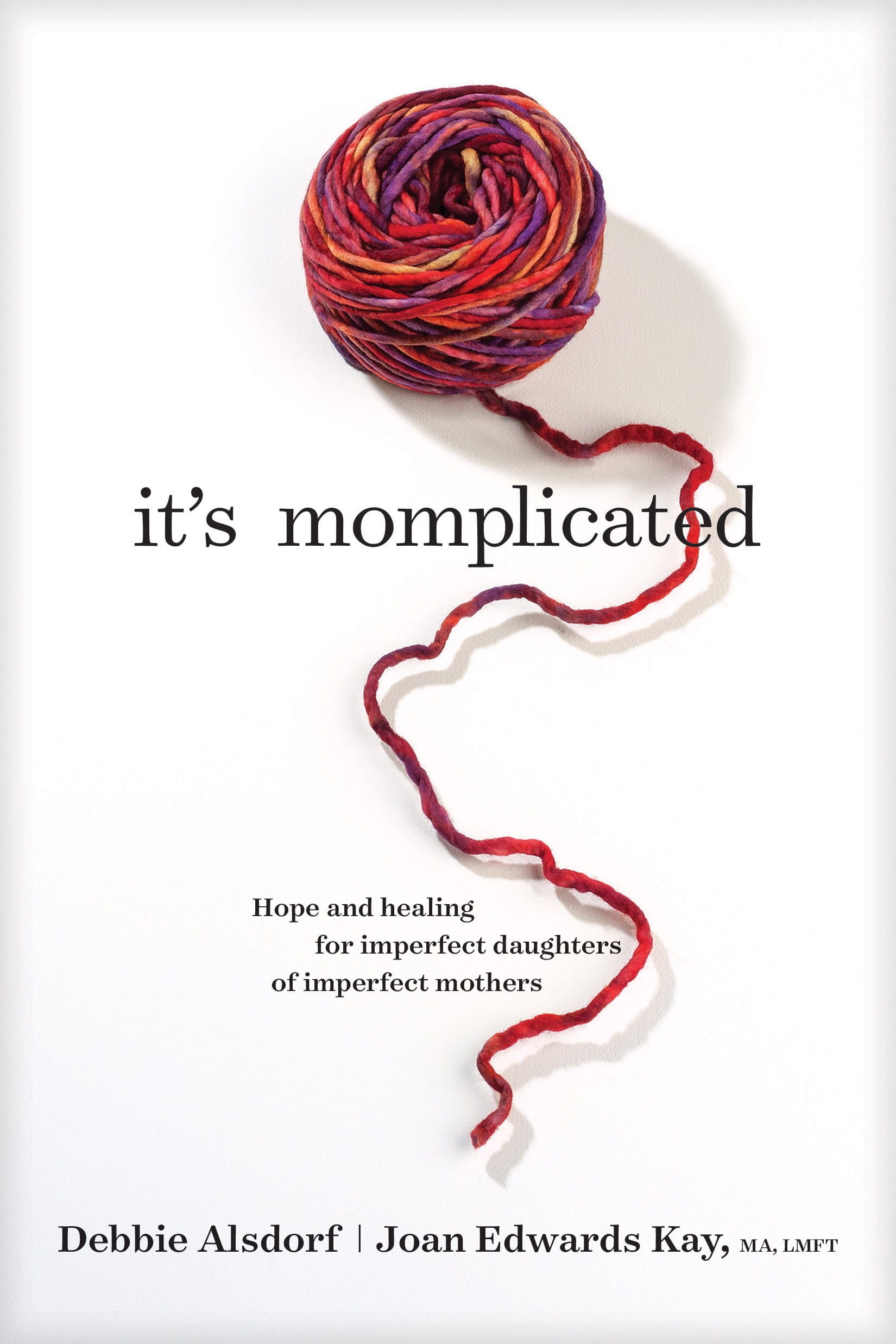10 Ways an Adult Daughter Can Improve Her Relationship with Her Mom

A woman’s relationship with her mother is one of the most complex yet sacred bonds she will ever have. It is complicated, rich, beautiful, and sometimes painful. Many women are conflicted: They love their mothers but don’t always enjoy them. Here are some common complaints of daughters:
“Mom tries to control my life.”
“I love her, but after we are together I often feel annoyed, frustrated, or hurt.”
“She treats me like I’m a child.”
“I never seem to be able to give her the time and attention she wants.”
What’s a daughter to do? Here are the top ten ways to improve your relationship with your mother:
Photo Courtesy: Thinkstock

1. Accept her for who she is
There is a myth—an expectation—that mothers are supposed to be a never-ending fountain of love, encouragement, and support. Yet most of our mothers have let us down in some way. As young children, most of us believed our parents were the source of all wisdom and truth, and we are surprised and disillusioned when we discover they are not. As adults, we need to change our expectations and allow our mothers to be human—to fail us upon occasion and not have it all together. Give your mother the grace you would give a friend. Seek a more reciprocal relationship, with you encouraging her in addition to her encouraging you. If we invite God to be our perfect parent, we can release our mothers from that role.
Photo Courtesy: Thinkstock

2. Forgive her
You have a choice. Will you hold on to hurt, anger, and resentment for the ways your mother has been imperfect? Or will you ask God to heal you and remove the bitterness? Forgiveness does not excuse what happened. It does not mean you should put yourself back in hurtful situations. It is simply a prayer of surrender. Choose to forgive her, not because she deserves it but because God has forgiven you. Recognize that you may need healing time before your emotions catch up and you feel forgiveness. As an act of your will, declare your intent to forgive her, asking for God’s help.
Photo Courtesy: Thinkstock

3. Do your own inner healing
You may have deep wounds from your relationship with your mother, or you may have only minor irritations. No matter how you have been affected, look to God for healing. This is an important first step before you try to reconcile or repair things between you and your mom. As young children, we were most vulnerable to being imprinted with messages about our worth and our place in the world. Maybe there were instances of neglect that made you feel as if you didn’t matter or were all alone. Maybe you were told things like “You don’t measure up,” and those words pressed themselves into your belief system like a stamp in wet cement. Maybe your mother was not able to provide a physically or emotionally safe environment, so you now have unreasonable fears and anxieties. Whatever the particulars of your situation, you can look to God to rewrite those beliefs. Renew your mind with Scriptures that tell you that you do matter, you are not alone, and you are safe in God. Allow God’s love and truth to pour into those hurt young parts of you. The more you can stand on God’s truth, the more you will be able to relate to your mother out of your adult, Holy Spirit–led self, rather than out of the hurt little-girl parts of you. Your mother may never be able to give you all you need, but God will.
Photo Courtesy: Thinkstock

4. Have appropriate boundaries
Healthy boundaries are essential to a loving adult relationship. Boundaries are not walls. They are not a way to control another person. They protect and define where one person ends and the other starts. You have a right to your own thoughts, feelings, and choices. Certain domains are your responsibility: your home, your marriage, your career choices, and how you raise your children, for example. If your mother tries to tell you how to think, what to feel, or what to do, she is overstepping your boundaries. If she does overstep, it is important that you kindly, firmly, and clearly take back ownership of what is yours. Sometimes the best way to do this is to let an inappropriate comment roll off you—simply to give grace. “Be patient with each other, making allowance for each other’s faults because of your love” (Ephesians 4:2, NLT). Sometimes it may require a more assertive “No” or a statement such as “Mom, please do not give my children candy.” Sometimes it may require action such as not allowing her to have a key to your home. Be direct about what you want. Let her know whether you want support or advice when you share something with her. Healthy, clear expectations and boundaries will go a long way toward preventing arguments, resentment, and broken relationships.
Photo Courtesy: Thinkstock

5. Consider having a healing conversation
Sometimes a discussion is required if a relationship is to move forward. There may be a wrongdoing that needs to be talked about or an apology that needs to be made. Hurtful words may have been spoken, or there may have been a misunderstanding. Boundaries may need to be clarified. Pray for wisdom about whether to engage in a healing conversation. Some mothers are not emotionally safe, in which case the way forward may be praying for the grace to accept them as they are.
Photo Courtesy: Thinkstock

6. Cultivate an adult-to-adult relationship
Treat your mother with the same kindness and respect you would give other adults. Would you walk into a neighbor’s home and say the first thing that popped into your head (“That chair is ugly!”) or indulge your bad mood and snap at a colleague? Some of us feel free to treat our mothers in ways we would never treat another woman. You and your mother have an adult-to-adult relationship now, so don’t throw self-control out the window and act like an impulsive teenager. Be a polite adult.
Photo Courtesy: Thinkstock

7. Be interested in her and her story
Your mother is a fully formed human with interests and hobbies separate from her identity as your mom. If she were someone you just met and you wanted to get to know her better, how would you go about that? Ask your mother about her childhood and other memories. She will feel valued, and you will learn more about your heritage. As people age, they have a need to find significance in their life stories. By showing interest and listening, you honor her. She holds the keys to your story, and you will be able to pass what she tells you on to your children. Your mother will not always be with you, so treasure the time you have with her.
Photo Courtesy: Thinkstock

8. Honor her by showing gratitude
To honor is to value as important. Though it is easy to focus on the negative, devote yourself to finding ways to appreciate your mom for what she diddo. Apply the principle of Philippians 4:8 to your mom: “Fix your thoughts on what is true, and honorable, and right, and pure, and lovely, and admirable. Think about things that are excellent and worthy of praise.”
Honoring your mother is one of the Ten Commandments: “Honor your father and mother” (Exodus 20:12). For some this feels difficult. How do you honor someone you don’t respect or have a hard time getting along with? Even if your mom is difficult, look for ways she has been there for you. At the very least, she gave you life, and that alone is worthy of gratitude.
Find practical ways to let your mother know she is important to you. Reach out to her. Affirm her. Remember her on her birthday, Mother’s Day, and Christmas (or whatever days are culturally significant in your family). Look for ways to honor her that would be specifically meaningful to her.
Photo Courtesy: Thinkstock

9. Stay in touch
Another way to love and honor your mother is to have regular contact with her. For some, this comes naturally. Others may need to be intentional about creating a ritual, such as a short text every morning or a phone call once a week. With current technology, it is much easier to stay in touch, even across the miles. Can’t meet your mom for coffee? Try a FaceTime coffee date. You would be surprised how far this goes toward connection.
Photo Courtesy: Thinkstock

10. Have fun together
Never underestimate the value of laughing together, having running jokes in common, or seeing the humor in things. It will bring joy to your relationship and deepen your bond. Also, ask what fun activity you and your mother might do together. Get a pedicure? Take a trip? Shop? Take a cooking class? Connect over your ancestry? Look for common interests and be intentional about cultivating them.

Debbie Alsdorf For the past twenty-five years, through her speaking and writing, Debbie Alsdorf's mission has been to help women live a better story by leading them to the heart of God's love and the truth of his Word. Debbie is a biblical lay counselor, a Christian life coach, and the founder of Design4Living Ministries. She and her husband, Ray, have raised a blended family of four adult children. Today Debbie's favorite role is being a grandma to ten little ones.
Joan Edwards Kay is a licensed marriage and family therapist in the East Bay of San Francisco and has been an adjunct professor at Western Seminary. She received her bachelor's degree from Vassar College and her master's degree from Western Seminary. She is happily married with two adult daughters, four stepdaughters, and five grandchildren.
Photo Courtesy: Thinkstock
Originally published April 26, 2019.








